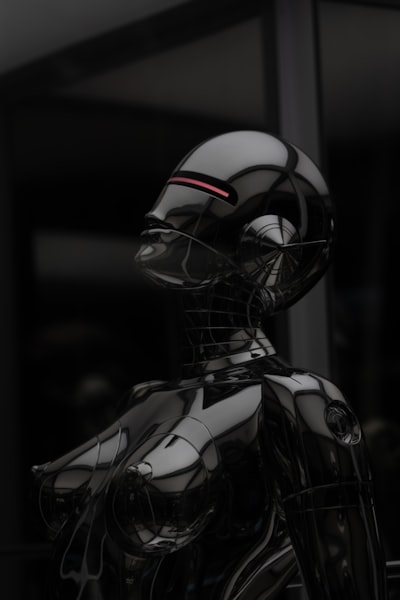Kurt Vonnegut's literary idiosyncrasies were so unique that his critics proclaimed he had single handedly invented a new genre of literature. It was never given a name. Perhaps because it was never replicated. Satirical science-fiction written in an experimental absurdist tone became, succinctly, "Vonnegut's." More than his namesake, his writings became anti. Anti genre and establishment. Anti culture. And, Anti war. Vonnegut's strong style carried with it an even stronger moral message. And to Vonnegut, no message was more anti-American than humanism.
Kurt said that he wrote to "catch people before they become generals and Senators and Presidents," to "poison their minds with humanity. Encourage them to make a better world.” Because, as Kurt wrote in his fifth novel, God Bless You Mr. Rosewater, American society was "savage and stupid and entirely inappropriate and unnecessary and humorless." It needed saving. Not through any corporate entity or government policy, but, by heeding to Mr. Rosewater when he implored, "God damn it, you’ve got to be kind."
Kindness is not the obvious theme in Vonnegut's dystopic, surreal settings. He places readers in the realm of the incomprehensible. Through his writings, Vonnegut kidnaps his reader and disorients them from all their senses, leaving them begging for any sense of the familiar. But often the estranged is just the familiar cloaked in madness. In his first novel Piano Player, the make believe corporation Ilium Works was a parody of General Electric (which he worked for in the later forties). Famously, in Slaughterhouse-Five the Tralfamadorian alien sect can be interpreted as an embodied God. This distancing of the real allowed readers to approach topics they might otherwise avoid.
As Wilson Taylor wrote, in The Vonnegut Review.
"His reflexive irony, far from acting as a negative or cynical impulse, actually serves as the foundation for a transcendent ethic of human love. Because human life has been unmoored from conventional meaning, suffering and evil are reduced to meaningless postures. All that remains is the imperative of love. His irony cultivates his humanism."
Still, it is not obvious why love, kindness, and humanism, is the moral force propelling his absurdist narratives.
To understand Kurt's plea for humanness, it helps to understand his lived tragedies. He witnessed his mother battle with manic episodes of an undiagnosed mental illness which turned her abusive. When Kurt was still a child, she killed herself. That act planted in him a grim possibility of his future. As Kurt wrote, "the child of a suicide will naturally think of death, the big one, as a logical solution to any problem."
He later fought in WWII, where Kurt experienced atrocities that he'd spend the rest of his life trying to overwrite from his memory. The attack on Pearl Harbor caused Kurt, who, at the time was pacifist college student, to renounce his devotion to peace. He then joined the U.S. Army and was later shipped to Europe with the 106th Infantry Division, where he fought in the Battle of the Bulge. That battle decimated his unit, and Kurt found himself behind enemy lines, aimless, alongside a few other troops. All were taken as prisoners of war.
As a prisoner, Kurt was held captive in Dresden, Germany in an underground meat locker. There he made vitamins for enemy combatants. Until the carpet-bombing of Dresden devastated the city. Once rescued, Kurt was ordered to help clean up the remnants. As he detailed, the corpses, "were so numerous and represented such a health hazard that they were cremated on huge funeral pyres, or by flamethrowers whose nozzles were thrust into the cellars, without being counted or identified.” These experiences inspired the writing of his seminal work Slaughterhouse-Five. The book was published against the backdrop of the Vietnam War, becoming the unofficial book for the anti-war movement.
Here too Kurt establishes himself as anti. He processed the horrors of war through an otherwise silly and off-beat piece of literature. A realist depiction of the war would have been the safest path for commercial success. Literal realism became the de facto form of American literature in the post-war era. A fact self perpetuated by the nation's burgeoning MFA programs, which produced a professional class of writer's trained in a standardized curricula and style. But Kurt evaded those stylistic expectations. Indeed, he never quite satisfied the requirements of academia. Earlier in his career, he wrote a thesis for a Master's degree in anthropology at the University of Chicago titled, “The Fluctuations Between Good and Evil in Simple Tales." Vonnegut's thesis was unanimously rejected the faculty. Ah, so it goes.
After the publication of Slaughterhouse-Five Vonnegut swore to never write another book. He soon after attempted to take his life, and one night overdosed on alcohol and pills. He survived that attempt, and would go on to write eight more novels. Each critically acclaimed and achieving relatively moderate commercial success. With each novel he entranced readers with bizarre worlds. Worlds where water froze at room temperature, or where only one person was gifted with free-will, or where humanity was inflicted with global infertility. These labyrinths served as worthy vehicles to his venerable beckon toward humanism. It's as if with each book he was writing for himself, and his readers, a small segment of the world that was at last inhabitable.
In the realm of the foreign, fundamental questions about the nature of life naturally arise. Subconscious acts become subjects of inquiry. And when everything is new, differences are effortlessly discovered. Kurt declared that "we are what we imagine ourselves to be." And in the bizarre worlds of his imagination Vonnegut dared his readers to become something other than human. Something far kinder, genuine, and resilient than literary realism could portray. A humanness deserving of some residence other than earth.
An Excerpt from Cat's Cradle
"God made mud.
God got lonesome.
So God said to some of the mud, “Sit up!”
“See all I’ve made,” said God, “the hills, the sea, the sky, the stars.”
And I was some of the mud that got to sit up and look around.
Lucky me, lucky mud.
I, mud, sat up and saw what a nice job God had done.
Nice going, God.
Nobody but you could have done it, God! I certainly couldn’t have.
I feel very unimportant compared to You.
The only way I can feel the least bit important is to think of all the mud that didn’t even get to sit up and look around.
I got so much, and most mud got so little.
Thank you for the honor!
Now mud lies down again and goes to sleep.
What memories for mud to have!
What interesting other kinds of sitting-up mud I met!
I loved everything I saw!"





